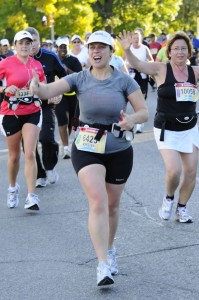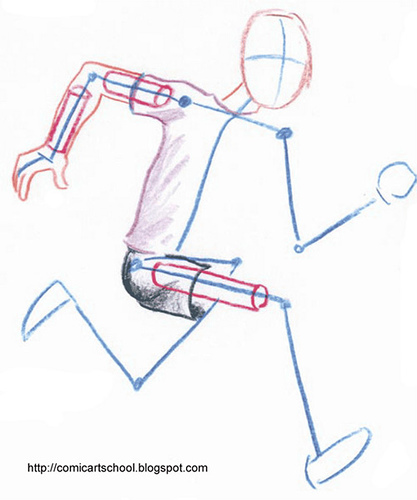An important part of special needs parenting – indeed, of any parenting – is staying healthy. For a long time I didn’t do this. I had some mental health conditions that were going untreated, and probably as a side effect of this, I didn’t care enough to look after my physical health.
Then, during a visit for a foot complaint, my doctor started questioning me about this and that, and realized that I was suffering from post-partum depression. At about the same time, the Geneva Centre for Autism started its charity challenge runs, and that proved to be a marvellous motivation. And so I gradually got myself onto the path of better physical and mental health. Now I run races regularly, and I see a therapist once a week.
When I tell people I run, a surprising number of them respond by saying, “Really? But it’s so bad for you!”
“Um, excuse me?” I ask politely.
“Yeah!” says the naysayer. “Running can give you heart attacks, and it destroys your knees!”
Both of those statements are, in fact, false. Running in itself cannot give you a heart attack. Exerting yourself beyond your physical capability without due care and attention can, but that has nothing to do with running. Unfortunately, that myth has come about as a result of a few highly publicized sudden deaths during marathons and half-marathons. It is important to realize that those tragedies were not caused by running, but by underlying medical conditions. The people concerned just happened to be running, but they could just as easily have died engaging in any other physical activity.
It is also important to realize that the percentage of marathoners and half-marathoners that this happens to is so small that it cannot even be expressed in a meaningful way.
The thing about bad knees is a fallacy as well. Several studies have tracked runners and non-runners over the same period of time and found that on average, the runners’ knees were more robust than those of the control group. Runners with bad knees tend to have one of the following: a genetic or medical predisposition to weak knees, bad running shoes, or the symptoms of going out too fast in an unfamiliar activity or on an unfamiliar surface.
Far from being bad for you, running can provide many mental and physical benefits. Ironically, as I write this, I am experiencing the after-effects of an exceptionally hilly ten-mile race I ran today, for which I was definitely undertrained. As sore as I am feeling, though, my knees feel great and my heart is beating strong and healthy.











